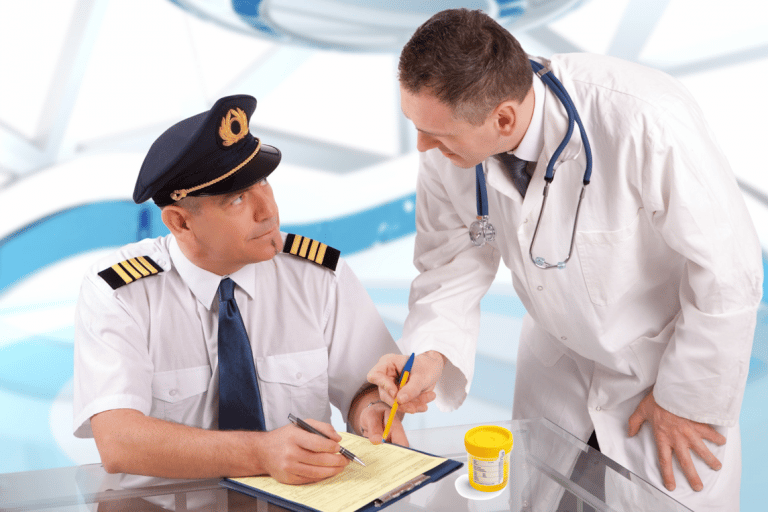Air transportation has become one of the most popular as well as quite possibly the safest mode of transportation in the last few decades but increasing drug use among airline workers in safety-sensitive positions is a major problem. Airline pilots are trusted with hundreds of lives every day as they transport customers to and from destinations all over the world and it is more important than ever that pilots are not under the influence of drugs or alcohol.
The Federal Aviation Administration requires that pilots and other workers with safety-sensitive jobs be drug tested prior to performing safety-sensitive jobs with a pre-employment test and also in the case of reasonable suspicion, post-accident, and they are also required to be enrolled in a random testing program. In 2015, 38 pilots tested positive for one or more of the following drugs: marijuana, cocaine, opiates, phencyclidine (PCP), and amphetamines. This number may seem very low compared with the total number of tests performed each year, but it is important to note that the number of positive results is increasing.
- 2010: 23 verified positive out of 37,708 pilot tests
- 2011: 28 verified positive out of 41,379 pilot tests
- 2012: 25 verified positive out of 39,177 pilot tests
- 2013: 24 verified positive out of 42,001 pilot tests
- 2014: 27 verified positive out of 43,973 pilot tests
- 2015: 38 verified positive out of 51,078 pilot tests
Source: Federal Aviation Administration
A recent event that has cause for concern in the aviation industry is the recent death of a Spirit Airlines pilot and his wife in what appears to be a drug overdose involving the highly addictive and deadly opioid, Fentanyl. This painkiller is incredibly deadly and has been connected to the deaths of over 700 people during 2013 and 2014. With the increase in abuse of pain medication abuse across industries and socio-economic groups, is it perhaps time to review the drugs that are being tested for as well as the testing process and specimen types. There is an ongoing movement to expand the DOT regulated testing panel to include opiods (or expanded Opiates), like oxycodone, oxymorphone, hydrocodone, and hydromorphone, as well as expanding specimen types to include hair testing. Read more at http://www.nationaldrugscreening.com/ .







